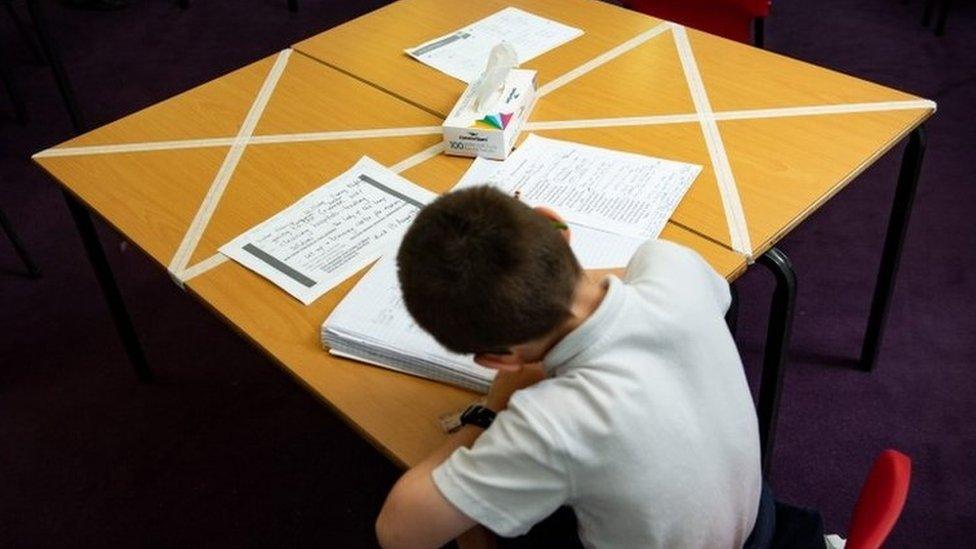Coronavirus: Are children back in school for three or four weeks?
- Published
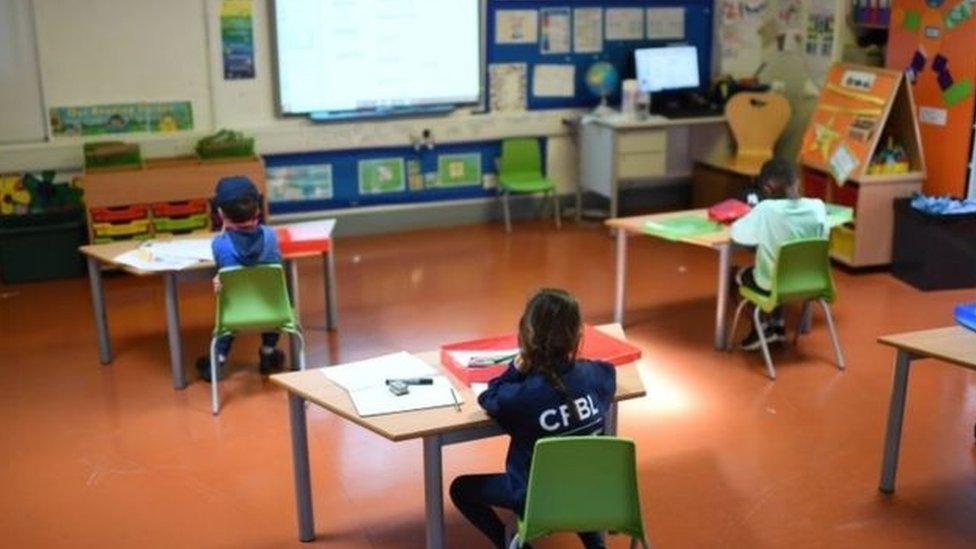
This is how schools could look with social distancing in place
At least three-quarters of Wales' state schools will only return for three weeks when children return to the classroom from Monday.
The Welsh Government wanted to extend the summer term by a week but unions were concerned a 27 July finish would cause problems for staff contracts.
Now 17 of Wales' 22 authorities will not extend term as talks with unions, councils and government stalled.
The government said councils could have the final say after union intervention.
Meanwhile, Education Minister Kirsty Williams said on Wednesday that online teaching at home was likely to continue to be a part of pupils' education "for some time".
So who's going back for three weeks?
If you go to school in Blaenau Gwent, Bridgend, Caerphilly, Cardiff, Carmarthenshire, Ceredigion, Denbighshire, Flintshire, Gwynedd, Merthyr Tydfil, Monmouthshire, Neath Port Talbot, Newport, Swansea, Torfaen, Vale of Glamorgan or Wrexham then your summer term is just three weeks long.
So school will be out for summer on the original end of term date.
And while pupils on Anglesey will not be returning on 29 June because of the coronavirus outbreak at the 2 Sisters meat factory, if they do return later their term will also end on 17 July.
Who's going back for four weeks?
If you go to school in Conwy, Pembrokeshire or Powys, then your summer term is the four weeks the government wanted.
"We believe the four weeks are important and will benefit our learners and their families," said Powys councillor Phyl Davies.
When Education Minister Kirsty Williams made the summer term extension announcement, she also said there would be a two-week half term in October to compensate the for the extra week in the summer.
Powys has said it would offer the two-week half term, while Pembrokeshire said it was awaiting confirmation from the Welsh government on the dates of a second week for half-term before making a final decision.
Conwy said it was "working closely" with the government with regard to the autumn term.
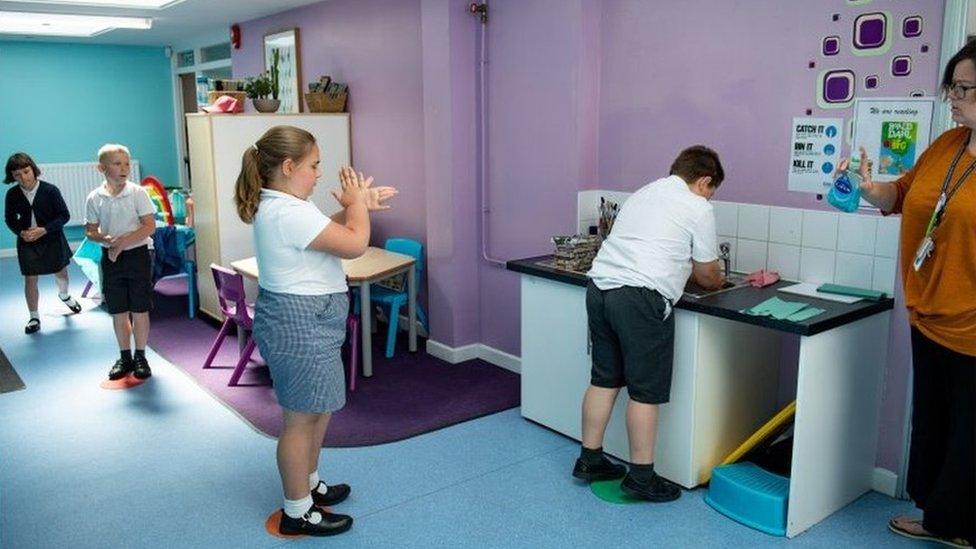
Hygiene and hand cleaning will be increased in schools when children return
So is anyone not sure?
Yes - if you go to school in the Rhondda valleys area then you still don't know how long your summer term will be as Rhondda Cynon Taf council said it had yet to determine whether schools would remain open for a fourth week.
What is the issue?
Unions representing support staff have said they cannot be required to work the proposed extra week as their contracts only cover standard term times.
So unions questioned the safety and practicality of the proposal and have warned there may not be sufficient numbers of cleaners and teaching assistants to enable schools to open.
Unison, whose members include teaching assistants, kitchen staff, cleaners and facilities staff in schools, say their members can only be asked to work the extra week on a voluntary basis.
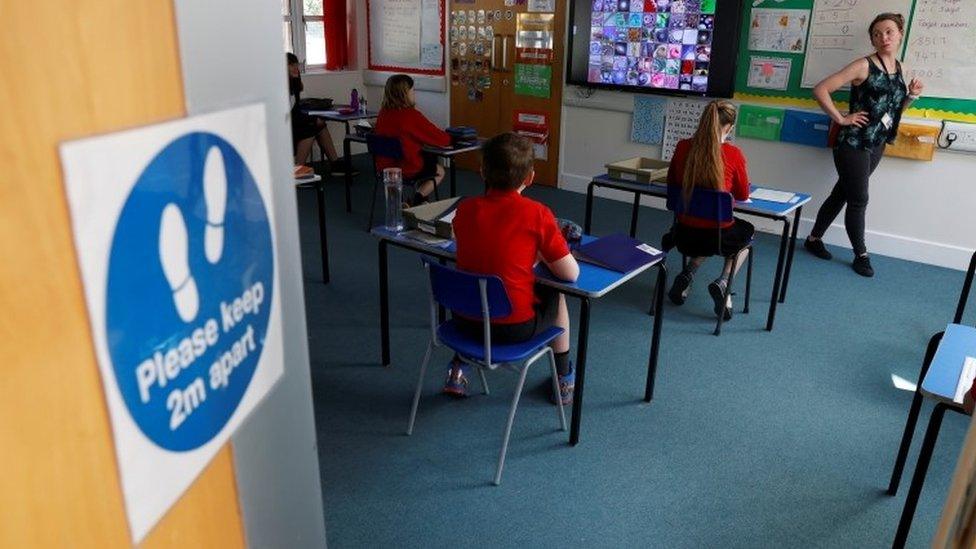
The government says face-to-face time for students is important
Teachers' unions are also believed to have had concerns about the proposal.
Why have some councils scrapped the extra week?
Although discussions to reach an agreement were ongoing, many authorities made an early decision with Wrexham council explaining that it could not be left "until the last minute".
"There's no contractual obligation for staff to work the extra week - putting the onus on individual head teachers and staff, which is unfair," Wrexham council said in a statement.
"It could also lead to inconsistency and confusion, with some schools able to open for the fourth week, and some not.
"We know that many parents will be feeling anxious and uncertain about sending their children back to school, and need to know exactly what's happening so they can make arrangements and feel confident."
Why did the government want a fourth week?
The Welsh Government said it believed the additional week would be "hugely important in helping schools take a phased approach in supporting all children and young people".
The chairman of the Senedd's education committee said the well-being of children should "be at the centre" of the discussion about extending the summer term by a week.
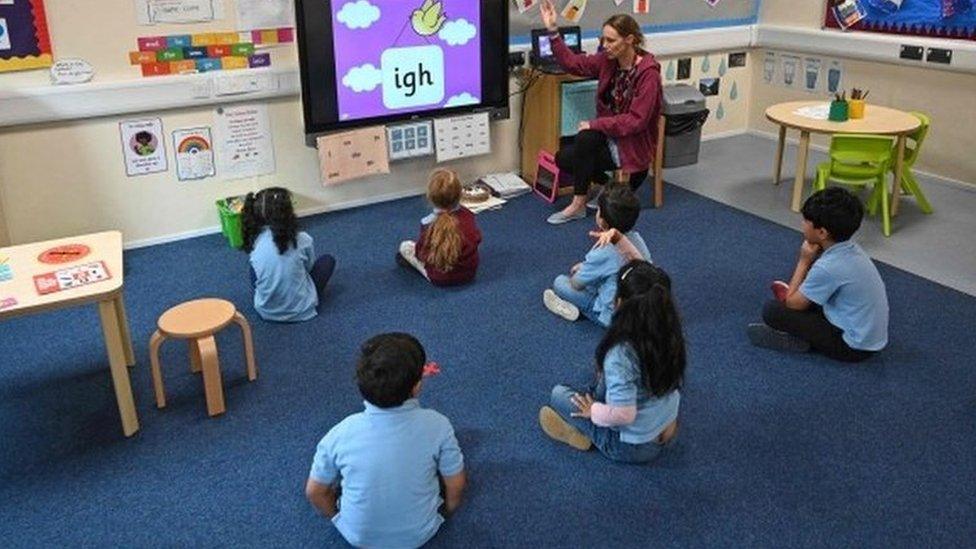
In a staggered return, a maximum of a third of pupils will be going back at any one time
Labour MS Lynne Neagle added that it was important to "maximize the amount of face-to-face time" pupils get before the summer break.
How often are your children going back?
It was announced earlier this month that schools in Wales will reopen for all year groups from 29 June, with no more than a third of pupils in school at any time.
Year groups will be split into smaller classes or "bubble groups" with staggered starts, ends, lessons and breaks for one or two days a week for the remainder of the summer term.
Education Minister Kirsty Williams said she wanted all children to have the opportunity to "check in, catch up, prepare for summer and September".
Of course, some schools had been open throughout the coronavirus lockdown - but only for pupils classed as vulnerable, and for children of key workers.
What could school look like in September?
Ms Williams has not ruled out children fully returning at the start of the new school year, but online learning will likely be a part of their education "for some time".
At a press conference on Wednesday she said the Welsh government would "work really hard to minimise the ongoing disruption to children and young peoples' education".
Ms Williams said she would keep the 2m social distancing rule under review, but even with a 1m rule "that will still present some real challenges in getting everybody back to the classroom".
- Published20 June 2020

- Published19 June 2020
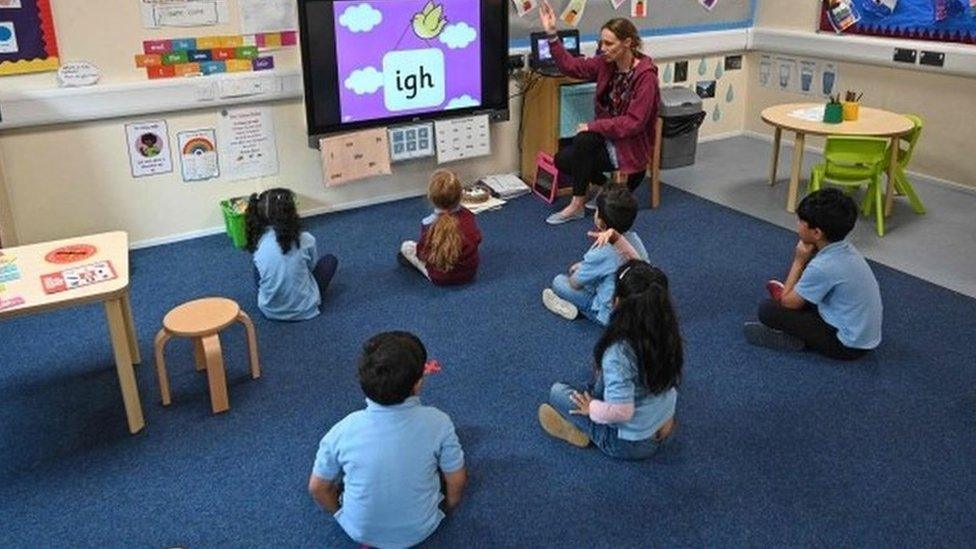
- Published18 June 2020
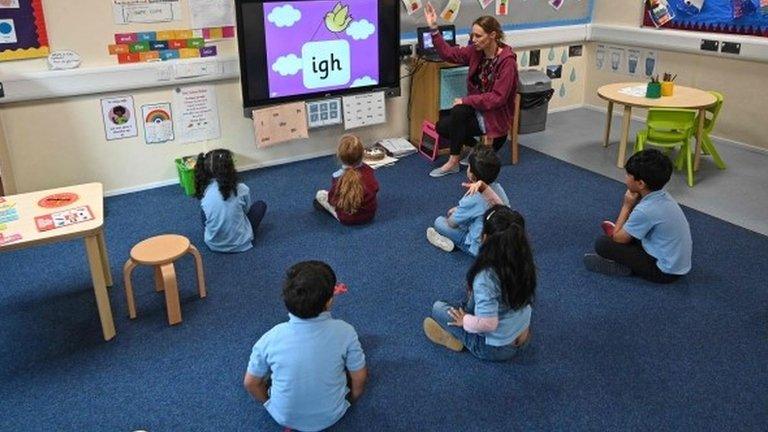
- Published8 June 2020

- Published24 June 2020
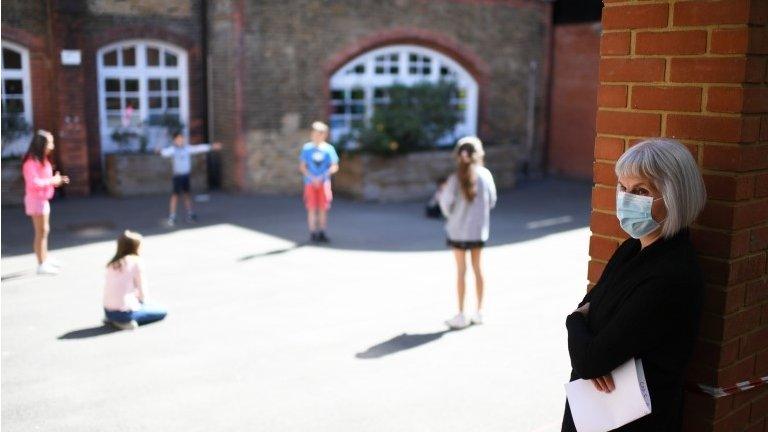
- Published3 June 2020
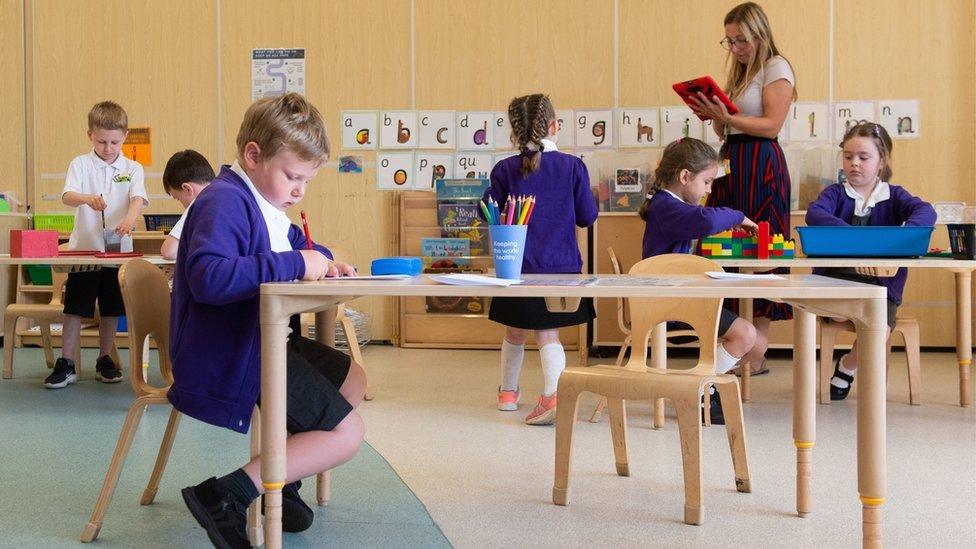
- Published10 June 2020
